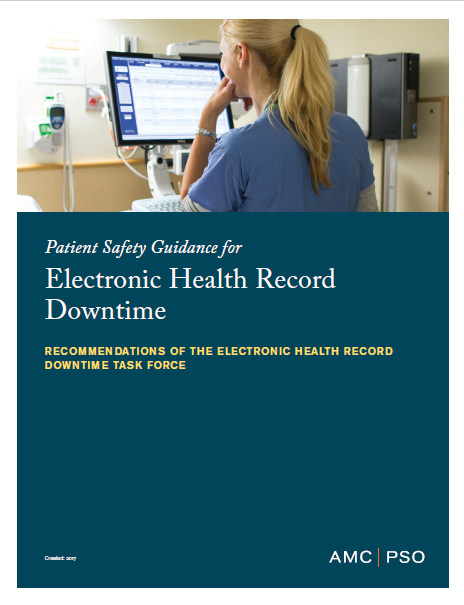Guideline
EHR Downtime Guidelines


Overview: Patient Safety Guidance for Electronic Health Record Downtime
In 2016, at the request of its membership, the Academic Medical Center Patient Safety Organization (AMC PSO) convened the task force to develop a set of literature supported, consensus-based guidelines addressing patient safety considerations during unplanned electronic health record (EHR) downtime events. This EHR Downtime Task Force reviewed the latest evidence, guidance, and opinion statements from relevant sources. Further insights were gathered from AMC PSO member subject matter experts in information technology, emergency preparedness, risk management, and patient safety.
What follows reflects the aim, mission and consensus opinion of the EHR Downtime Task Force. It offers guidance for patient safety leaders in their efforts to provide the safest care during unplanned EHR downtime and throughout the recovery phase.
TASK FORCE
|
|
STATEMENT
The recommendations for Patient Safety Guidance for EHR Downtime were developed under the auspices of the Academic Medical Center Patient Safety Organization (AMC PSO) EHR Downtime Task Force. These consensus recommendations are for informational purposes only and should not be construed or relied upon as a standard of care. The AMC PSO recommends institutions review these guidelines and accept, modify, or reject these recommendations based on their own resources and patient populations. Additionally, institutions should continue to review and modify these recommendations as the field continues to evolve.
See also the 2023 AMC PSO Patient Safety Alert on cyber security.
View Alert
More AMC PSO Content
Patient Safety Guidance for Perioperative Fire Safety


Patient Safety Guidance for Pathology Specimens

Interventional Radiology Guidelines


